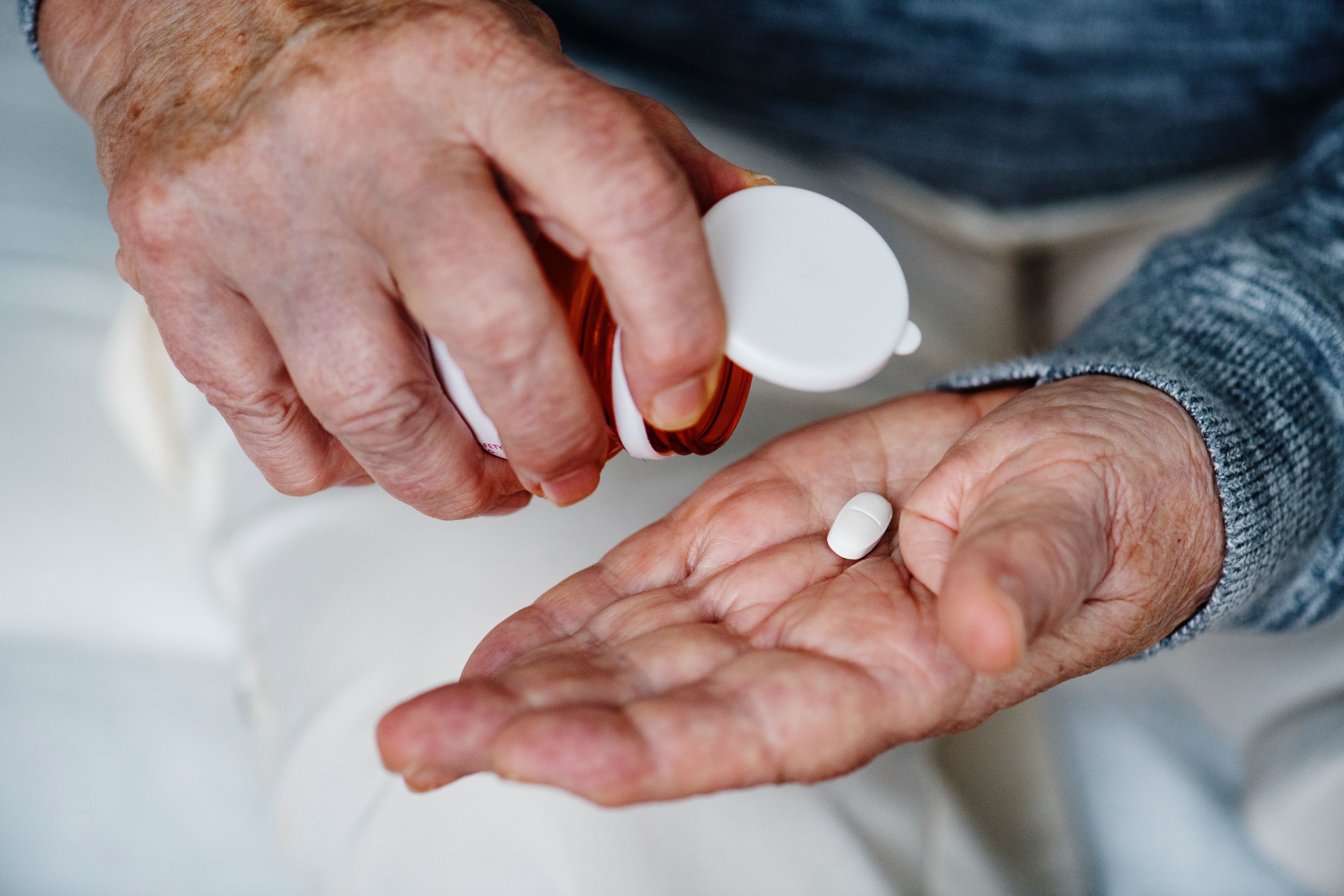“Nootropics” are chemicals and compounds that optimize attention, quick-thinking, memory and productivity while protecting neurons and preventing degenerative diseases. Using these natural products to stay sharp is popular in high pressure industries where keen attention and prolonged focus are synonymous with career success. Tech workers, designers, and entrepreneurs are using nootropic herbs, vitamins, minerals and lifestyle changes to boost their productivity by modulating overlooked pathways in the brain and nervous system. Older people, students, and recovering addicts are also taking up lifestyle changes and supplementing with nootropic herbs and nutrients to improve mood, motivation, and memory. Basically: nootropics can make you feel and perform better.
You might already be doing it – did you know that coffee is packed full of nootropic compounds like caffeine and theobromine? (More on these below.)
Nootropics work on different pathways in the brain and nervous system, and combining particular herbs and nutrients into a “nootropic stack” or supplement can produce tailored and precise results.
MindLab Pro and Qualia are two of the most popular natural nootropic supplements on the market. Both contain therapeutic grade nutrients and herbs that support brain function and protect against neural degeneration; both are vegan-friendly, gluten-free, and made from non-GMO safety-assured ingredients; and both have thousands of anecdotal accounts of bringing about greater focus, motivation, mood and creativity while taking them.
We'll break down the hype and highlight the ingredients in these popular nootropic supplements to help you identify which combination of ingredients is best for you and your individual brain.
Key Ingredients in BOTH Qualia and Mind Lab Pro
First, here's what the most common nootropic supplements have in common: Qualia and Mind Lab Pro both contain high quality ingredients in the best forms for optimal absorption and metabolism in the body. Neither have spared effort or cost in finding safe, effective sources of herbs and nutrients. Here are the key ingredients that they have in common, and why selecting either of these nootropic supplements will boost your mind-power and energy:
Bacopa Monnieri
Bacopa monnieri has a rich history as one of the oldest and most respected nootropic herbs in the world. It has been used as a powerful memory-enhancer since priests of ancient India used the herb to help them memorize extensive spiritual texts.
Bacopa extracts are rich in bacopasides, chemicals that improve synaptic transmissions and boost the conductivity of electricity between neurons. They increases nerve transmissions within the hippocampus – the seat of learning and long-term memory, leading to more accurate memory function and faster recall. These bacopasides also add “synergy” to Qualia and Mind Lab Pro – they can make neural synapses more sensitive to the effects of other herbs found in these nootropic supplements.

A three-month, double-blind, randomized, placebo control study looked at the effects of bacopa extract on memory. Participants aged between 40 and 65 years took cognitive tests before the study began to establish a baseline level of memory, mood, cognitive skill and general knowledge. They were then given either a placebo or 300mg – 450mg of bacopa per day (depending on their body weight), before being retested at the end of the 3 month trial period. The participants who had taken bacopa had significantly improved retention of new information, speed of recollection, and a reduction in lost memories.1
Bacopa's can improve general mood too, and studies suggest that it works fast. One study showed that 300mg of bacopa extract per day relieved symptoms of anxiety and depression in only twelve weeks – that's faster than most anti-depressant medications2.
In the long term, bacopa provides neuroprotection against degenerative diseases and dementia. It halts the development of beta-amyloid plaques in the brain (characteristic formations found in Alzheimers disease) and ensures the membranes of the brain remain flexible. This protects against neural rigidity – a hallmark of neurodegeneration and dementia.3
Taking a recommended dose of Qualia will deliver 300mg of bacopa extract with a 45% bacosides; MindLab Pro, on the other hand, will give a lower 150mg of standardised 24% bacosides.
Citicoline
Both MindLab Pro and Qualia Mind contain therapeutic doses of a proprietary form of citicholine, a nutrient that is halfway between the vitamin-like nutrient choline and its final metabolised form as phosphatidylcholine.
Citicoline is an essential compound in the structure of cell membranes. It can stop the death of brain cells and promotes the repair of damaged neurons by accelerating the resynthesis of fats that form cell walls4. It activates the pathways that create neurotransmitters such as dopamine and norepinephrine, key chemicals behind feelings of satisfaction, motivation, achievement and contentment. But making neurotransmitters is only half the recipe – studies have shown that supplementation with citicholine can also increase the density of dopamine receptors, protect against neurodegenerative disease, and even promote repair after brain trauma567.
Citicoline is a particularly safe supplement. It's quickly metabolised and used in a diverse range of biochemical pathways, before being ultimately excreted as carbon dioxide through the lungs. It's noted as being particularly safe in the elderly and critically unwell patients, with a large study showing that side effects only occur at the same rate as people taking placebo8. In contrast, its original form as choline can cause significant toxic effects if taken in large quantities – researchers don't yet know why but have concluded that citicoline is far safer9.
Multiple studies have demonstrated that citicoline supplements provide a modest but consistent improvement in memory in people with cognitive impairment101112 – it's important to note that these studies were all less than 3 months in duration, with the greatest results occurring within the final month. This could suggest that the effects of citicholine are accumulative and long-term use could compound its nootropic effects.
Mind Lab Pro delivers 250mg of citicoline. Qualia provides only 100mg but it also contains an additional 200mg of alpha-glyceryl phosphoryl choline, another natural form of choline found in the brain that brings acetylcholine – an essential neurotransmitter for memory – across the blood brain barrier.
Phosphatidylserine & DHA
Phosphatidylserine is a phospholipid (a type of fatty structure) that is an essential component of cell membranes and is highly concentrated in the brain. It is particularly important for cellular communication, maintaining neuron fluidity, supporting nerve function, and maintaining myelin. Myelin is a type of lining around nerve cells that naturally degrades over time, resulting in “frayed” edges, misfired nerve signals, and ultimately lower cognitive performance. Supporting myelin can reduce the risk of age-related cognitive decline.

Phosphatidylserine is also a precursor for neurotransmitters such as acetylcholine and dopamine – two chemicals responsible for memory, recall, concentration, positivity, and maintaining restful states of sleep and relaxation. Supplemental forms of phosphatidylserine readily cross the blood brain barrier and directly influence the metabolism of these neurotransmitters13. Adequate amounts of this underrated nutrient are required for both the release and action of these feel-good, motivational neurotransmitters.
Phosphatidylserine naturally contains the omega-3 fatty acid, DHA, which has been clearly associated with protection against neurodegenerative disease including Alzheimer's and Parkinson's.
Both MindLab Pro and Qualia Mind both contain proprietary phosphatidylserine derived from sunflower fats at 100mg per serve. Qualia goes one step further to boost DHA levels by providing an additional 200mg from an algae source.
Gingko Biloba Leaf Extract
Gingko is one of the oldest living tree species in the world – so old that it is considered a “living fossil”. The leaves of this wise tree contain potent constituents that boost circulation to the brain and protect the brain against natural degenerative processes.
In 2015, a systematic review and meta-analysis of the available literature concluded that doses of 240mg per day are required to slow down the natural decline of cognition in people who already showed some signs of dementia14. The presence of these symptoms suggests that the physiological functions in the body are already well and truly out of balance... It might be possible that the doses found in Mind Lab Pro and Qualia (both 50mg a day) could maintain or even improve cognition in neurotypical people – but there are no studies suggesting this is kind of dose is even close to effective.

That said, the actions behind gingko biloba's cognitive effects could occur at lower doses when combined with other herbs and nutrients that do the same thing. For example, gingko is a strong vasodilator – it improves blood flow through arteries, capillaries and veins within an hour of consumption. This means that more blood can make it into the small vessels within the brain, delivering more nutrients and oxygen where they are needed for quick-thinking, memory recall and focus. Gingko could combine with other ingredients such as caffeine and niacin found in Qualia to boost this process.
Rhodiola rosea
Herbalists have been prescribing rhodiola for symptoms of stress and memory loss for hundreds of years. Its active constituents, rosvarins and salidrosides, help to boost key neurotransmitters and bring them across the blood brain barrier. Recent research has proven that this adaptogen can relieve fatigue and improve cognition during stressful situations. A 14 day trial showed that participants who took 400mg of rhodiola extract each day experienced a significant improvement in self-reported symptoms of anxiety, stress, anger, confusion and depression15.

Qualia delivers 300mg of rhodiola with 3% standardized rosvarins and 1% salidrosides. Mind Lab Pro delivers only 100mg of rhodiola, with the same standardied doses of rosvarin and salidrosides.
L-Theanine
L-Theanine is an amino acid with a unique ability to promote relaxation while boosting alertness and sharpening attention16. It occurs naturally in high concentrations in green tea where it softens the stimulating effects of caffeine – this may come in handy with Qualia's caffeine hit of 200mg per serve, but Mind Lab Pro is already caffeine free leaving L-theanine to work its soothing effects without interaction.

L-theanine has been shown to boost dopamine, serotonin and GABA neurotransmitters and there are extensive human trials backing its use as a nootropic. One study found that taking 250mg of L-theanine for 8 weeks relieved symptoms of depression, anxiety and sleep disturbances in adults with Major Depression Disorder17.
Mind Lab Pro contains 100mg of standardized L-theanine. Qualia doubles that dose with 200mg of L-theanine per serve.
Acetyl-L-Tyrosine
Another amino acid, tyrosine is essential for the synthesis of the stress hormones epinephrine and norepinephrine. Low levels of tyrosine can disrupt a healthy stress response resulting in damage to neural tissue, disrupted blood glucose levels, and foggy thinking during high-pressure situations. Supplementing with L-tyrosine has been shown to improve multi-tasking, attention, and mental performance during times of stress18.
The acetyl group attached to tyrosine here helps it cross the blood brain barrier, and contributes a precursor for the memory-boosting neurotransmitter, acetylcholine.

Mind Lab Pro provides a dose of 175mg of L-tyrosine, while Qualia delivers 250mg. Both use it in its highly bioavailable form as L-acetyl-L-tyrosine.
B Group Vitamins
Qualia and Mind Lab Pro contain key B group vitamins for energy production, neurotransmission, and regulation of inflammation. Mind Lab Pro focus on the three B vitamins required for the metabolism of homocysteine – a pro-inflammatory amino acid that has been linked to cognitive decline, brain degeneration, cerebrovascular disease and mood imbalances. Qualia contains a little extra with vitamin B5 as calcium pantothenate, which can help to relieve stress, boost acetylcholine synthesis and improve memory19.

The Real Differences Between Qualia Mind and MindLab Pro
Mind Lab Pro: Lion's Mane for Nerve Regeneration
Lion's mane, or Hericium erinaceus, is a potent, edible fungus that grows on the sides of decaying trees. It is used in Traditional Chinese Medicine and has been extensively researched in recent years for its nootropic actions and energy-boosting potential. It contains antioxidants, glycoproteins, and nootropic polysaccharides hericenones and erinacines, which have been shown to promote the regeneration of nerve tissue and myelin in animal studies20. This gives Mind Lab Pro a great advantage when it comes to protecting and regenerating nerve tissues.

Mind Lab Pro: Maritime Pine Bark for Antioxidants
Rather than relying on synthetic vitamin C and other lab-created antioxidants found in Qualia, Mind Lab Pro have extracted natural proanthocyanidins from maritime pine bark. These powerful antioxidants promote blood flow and can uniquely cross the blood brain barrier where they protect the delicate tissue there from free radicals and toxins.

Qualia: Caffeine
MindLab Pro is completely caffeine free, while each serve of Qualia contains over 200mg of the stimulant – that's as much as two shots of espresso. For people who already drink coffee, that might not make a dent in their morning mood, but anyone with a sensitivity to caffeine will get the jitters. Taking 200mg of this drug per day significantly increases the risk of developing an addiction; it also means that you may need to cycle Qualia (i.e. take a week off here and there) to reset your tolerance. On the other hand, there is a benefit to taking a big hit of caffeine in your nootropic stack – it rapidly increases blood flow and delivers near-immediate improvement to focus, motivation and perceived energy levels.

The soothing actions of taurine and L-theanine may help to offset some of the side effects of this high caffeine dose, while theobromine works in synergy with it to promote long-lasting alertness.
Qualia: Theobromine
Theobromine is found in the cocoa bean along with caffeine. The two compounds work synergistically as stimulants, but theobromine has a slower onset and longer duration. Theobromine can similarly cause symptoms of anxiety in high doses, though it works on a different part of the nervous system. When used moderately, it promotes alertness and energy, and users often find that focus from theobromine alone that can be sustained for much longer periods than caffeine21. Its effects on mood and attention are likely due to its ability to modulate a wide range of neurotransmitters and their receptors – from GABA to dopamine, serotonin, norepinephrine, and acetylcholine, theobromine is able to influence all aspects of cognition, attention, memory and learning. Research suggests that its effects are more potent when working synergistically with caffeine22.

GOOD NEWS – Neurohacker Collective now offers a caffeine-free Qualia Mind supplement which delivers all of the benefits of the original without the caffeine and theobromine.
Qualia : Forskolin
Forskolin is an active herbal constituent found in the roots of Coleus forskohlii, a type of mint native to East Africa and India. Extracted forskolin is used extensively in laboratory experiments on cellular physiology as it quickly boosts cyclic AMP (cAMP), a molecular secondary messenger that is essential for thousands of cellular reactions. Because of this cellular-superpower, forskolin can improve cell signalling throughout the brain and nervous system23. It has also been shown to balance testosterone levels to improve mood, energy and libido24.

Forskolin works synergistically with artichoke to boost cAMP levels and improve cognition, to even greater levels than when it's taken on its own.
Qualia: Artichoke Extract
Artichoke extract is rich in antioxidants and a potent active compound called cynarin. Together, these polyphenols have been shown to improve working memory, short-term memory, fast recall and memory consolidation25. This action is likely due to the protection of neural tissues by artichoke's antioxidants, in combination with cynarin's ability to improve cellular function (further boosted in the Qualia stack by cynarin's synergistic interaction with forskolin).

Cyclic AMP (cAMP) and phosphodiesterase-4 (PDE-4) are directly involved in memory creation and retention. A 2010 study found that, when combined, molecules similar to cynarin and forskolin interact with cAMP and PDE-4 in a way that improves long-term synaptic strength and memory retention26. This combination of herbal extracts was first popularised in the nootropic stack, CILTeP, a product that was independently created and backed by the online nootropic community. The original CILTeP formula was designed to improve memory formation, focus and concentration by modulating PDE-4 and cAMP levels. Both artichoke and forskolin have been shown to work on these pathways – and to do a better job when they are combined27.
Holistically, artichoke can give some protection against cardiovascular disease processes that may inhibit circulation to the brain. Taking an artichoke extract can reduce cholesterol levels within 4 – 6 weeks28– maybe faster when combined with all of the other cholesterol-reducing compounds found in Qualia.
Qualia's Extra Amino Acids
Amino acids including phenylalanine, acetyl-L-carnitine, and taurine are precursors for key neurotransmitters and are involved in energy production within the brain. These are often limited in a plant-based diet, so supplementation may be particularly helpful for vegans.

Qualia: DL-Phenylalanine
Phenylalanine is a precursor for tyrosine (also found in the Qualia formula), which is, in turn, converted into the neurotransmitters dopamine, norepinephrine and epinephrine. Aside from providing extra tyrosine to create these motivational neurotransmitters, phenylalanine has also been shown to boost synaptic communication for better memory and learning, and it can reduce chronic pain by promoting the body's natural opioid responses to inflammation2930. In this highly bioavailable form, DL-phenylalanine is able to effectively cross the blood brain barrier.

A build-up of phenylalanine in the blood can cause toxicity, resulting in brain abnormalities and cognitive impairment. In most people, supplemental phenylalanine is metabolised effectively into tyrosine – but this can be slowed down by genetic conditions or a lack of nutrient cofactors for the conversion, such as B group vitamins, vitamin C, copper and iron. While Qualia contains a good dose of vitamin C and select B vitamins, the formula lacks copper and iron, likely due to the toxicity risk of these two minerals. Be sure to get your serum levels checked regularly.
Qualia: Acetyl-L-Carnitine
Acetyl-L-carnitine is a cellular energy booster. L-carnitine's major function in the human body is to transport fat across cell membranes for utilisation as an energy source – this is particularly active in the fatty environment of the brain. It also keeps the brain free from toxins by transporting metabolic byproducts out of the mitochondria after energy has been produced – this protects neurons from oxidative stress and damage associated with conditions such as multiple sclerosis31, Parkinson's disease32, and fibromyalgia33. Therapeutic doses of L-carnitine have been shown to reduce fatigue and cognitive symptoms associated with these conditions.

Natural carnitine levels decrease as we age and neural mitochondria degrade alongside them. Supplementing with L-carnitine may help to boost energy levels and maintain neural firing34. A meta-analysis of double blind randomized controlled clinical trials found that acetyl-L-carnitine could improve attention, memory, and mental performance in older people with mild cognitive impairment or Alzheimer's disease35.
L-carnitine has also been shown to protect against intense neurotoxicity, including the types commonly induced by chemotherapy. It can even promote the recovery of nerve function36.
The acetyl group makes L-carnitine more bioavailable and able to cross the blood brain barrier; it also provides a key precursor (along with choline) for the formation of acetylcholine, a neurotransmitter responsible for memory, mental alertness, and thought fluidity.
Qualia: Taurine
Taurine and its metabolic products have multiple nootropic roles – neural protection, mood altering, and memory-boosting. They act as antioxidants to protect nerve tissues against free radical attacks, and help to remove toxins from brain cells. In the long-term, taurine has been shown in animal studies to protect against memory loss by strengthening synapses37.

Taurine is often used in nootropic circles for its anti-anxiety effects as it is able to act as both an energy booster and a sedative. It is often used to calm the brain down after periods of excessive activity by interacting directly with GABA receptors in the thalamus – the area of the brain that controls how much sensory information is forwarded to the cortex. By activating GABA receptors there, taurine acts like a central nervous system depressant to soothe the brain and reduce cortisol levels38. Taurine is often consumed with caffeine to offset the stimulant's side effects like nervousness, restlessness and scattered attention.
Qualia: Benfotiamine
Benfotiamine is a synthetic but highly bioavailable variation of thiamine (vitamin B1), which is quickly converted into its vitamin form after ingestion. It exhibits all actions of dietary thiamine and has been proven to work particularly well as an immune-booster and neural protector. In vitro and animal studies have found that benfotiamine may help to relieve symptoms of depression and anxiety, reduce the impact of stress, and quell inflammation39. One very small human study found that taking 300mg of benfotiamine each day for 18 months significantly improved the cognitive abilities of five patients with Alzheimer's disease40, possibly by reducing the accumulation of amyloid plaques or advanced glycation end products within the brain. While this dose is 3x the amount found in a daily serve of Qualia, these neuroprotective effects are likely to be relatively effective in people without advanced degenerative disease.

Thiamine itself is required for carbohydrate metabolism and the synthesis of ATP, regulation of mood and energy, and acts directly as an antioxidant throughout the nervous system41.
Qualia : Uridine-5'-Monophosphate
Uridine is a component of RNA and when combined with choline, it can actually increase the number of synapses in the brain42 On its own, uridine improves the plasticity and adaptability of neurons by creating phospholipids to keep the integrity, strength and flexibility of cells intact. Healthy cell membranes are better able to communicate between one another, leading to faster cognition and reflexes.

One in vitro study found that just four days of uridine administration caused a significant increase in neurological plasticity43, and uridine's synergy with choline has also been found to improve verbal and logical memory44.
With links to mitochondrial health, uridine may help to balance mood. A 2011 case study found that a daily 1g dose of uridine rapidly improved symptoms in depressed adolescents with bipolar disorder 45. While this kind of high dose should only be taken under the supervision of a qualified healthcare practitioner, it does hint to the effects of lower doses on mood balance.
Qualia: Mucuna Pruriens
Mucuna pruriens is a legume that has been used for hundreds of years in Ayurvedic medicine as a male tonic for fertility, mood and libido. While you may not be reaching for a nootropic stack to boost your sex drive, many of the pathways that are activated by this aphrodisiac also support cognitive function. Most notably, Mucuna pruriens is rich in L-dopa, a precursor to dopamine. Where L-dopa can cross the blood brain barrier, dopamine can't – this means that taking a dopamine supplement would do nothing for levels of this key neurotransmitter within the brain. The conversion of L-dopa to dopamine within the brain requires vitamin B6, found in Qualia as pyridoxal 5' phosphate.

An increase in dopamine can help to relieve stress – a major factor that impacts male sexual health and cognitive abilities. A study in 2010 found that taking Mucana pruriens seed powder each day for 3 months significantly ameliorated the psychological stress levels in infertile men46. It also boosted the levels of antioxidants in their blood, and improved healthy sperm count. Bonus!
But L-dopa has actions beyond dopamine synthesis. It is essential for the release of neurotrophic factors within the brain and central nervous system, proteins that influence the growth and survival of neurons – this may help to protect against age-related neurodegenerative decline and could help to literally “rewire” the brain during trauma recovery.
Qualia: Huperzine A
The firmoss Huperzia serrata, or toothed clubmoss, is a Traditional Chinese Medicine herb that contains a potent constituent called huperzine A – this powerful compound inhibits the enzyme that breaks down acetylcholine. Nootropic communities have been boosting their acetylcholine levels for decades by taking concentrated huperzine A along with nutrients that promote acetylcholine synthesis such as the citicholine, phosphatidylserine, alpha-glyceryl phosphoryl choline, and acetyl-L-tyrosine found in Qualia. By boosting its synthesis and inhibiting its breakdown, this combination of phytonutrients can skyrocket acetylcholine levels for supercharged memory, learning, sustained attention, and feelings of reward.

Huperzine A works as an antioxidant to protect the brain against hydrogen peroxide damage and may prevent the accumulation of beta-amyloid plaques associated with Alzheimer's disease47.
Qualia: Celastrus paniculatus
Celastrus seeds are packed full of active constituents that protect the brain against oxidative damage, boost memory and improve learning outcomes. This herb has been revered in Ayurvedic medicine for its antidepressant, anti-anxiety, pain-relieving and anti-inflammatory actions – and its brain-boosting power has given it a common name that translates to “the intellect bush”.

Modern research is fairly limited on this herb, but animal studies have shown that (similarly to Huperzia serrata) celastrus extracts can inhibit the enzyme that breaks down acetylcholine. It may also modulate levels of other neurotransmitters to relieve stress and improve cognitive performance under pressure, and has the potential to reverse memory deficits48 49 50.
Qualia: Pyrroloquinoline Quinone
Pyrroloquinoline quinone or PQQ is a potent growth factor, antioxidant, neuroprotective agent and energy booster. PQQ can increase the number of mitochondria in particular cells, and improve how efficiently they create energy – this is good news for every aspect of brain health, from memory and cognition through to stress and sleep. A small trial of 17 participants found that taking 20mg of PQQ each day for 8 weeks improved self-perceived levels of energy, sleep quality and duration, and even appetite51.

Another trial looked at the impact of PQQ on inflammatory biomarkers. After 3 weeks, healthy participants who took 20mg of PQQ per day showed a significant decrease in C-reactive protein and IL-6 – inflammatory markers that have been linked to cognitive dysfunction52. PQQ may help to relieve symptoms of inflammation-related conditions such as depression and anxiety, and may protect the brain against changes associated with dementia and Alzheimer's disease.
Qualia: Vitamin C
Vitamin C is one of the most well-known antioxidants, and it's also the most abundant in the human body. Surprisingly, deficiencies in this abundant nutrient are quite common – possibly because it is quickly excreted from the body when under any type of emotional, physical or mental stress. Qualia contains 100mg of ascorbic acid, which is nowhere near a therapeutic dose – vitamin C is a particularly safe nutrient and most people can taken doses of up to 2g before gastrointestinal side effects kick in. It's likely that this small dose is included in the Qualia formula as a cofactor for dopamine, norepinephrine and epinephrine synthesis.

However, vitamin C has a wide range of activities within the brain. It easily crosses the blood brain barrier and accumulates in the hippocampus, the site of short- and long-term memory. Within the brain space, vitamin C works synergistically with endogenous antioxidants like glutathione, and synthetic supplements like benfotiamine to protect nervous tissue against oxidative stress, inflammation, and circulation issues. Vitamin C also helps to boost blood flow by relaxing vessels, improving the delivery of nutrients, oxygen and fuel to all areas of the brain.
Qualia: Vitamin D3
Vitamin D3 or cholecalciferol is a bioactive form of vitamin D, an essential nutrient that is actually more of a hormone than a vitamin. As well as its well-known role in bone health, vitamin D has a major impact on DNA synthesis, hormone balance, energy production and glucose metabolism, immune reactions, mood stability. Recently, low circulating vitamin D levels have been linked to depression, mood swings, DNA damage, and dementia53.

Adequate levels of vitamin D is required to preserve neurological development and protect the adult brain54. In a large meta-analysis in 2017, researchers suggested that vitamin D3 supplementation could help to the relieve symptoms and progression of neurodegenerative diseases in people with low levels55. Keeping levels within the normal range may also help to prevent the onset of these conditions.
NOTE: Cholecalciferol is generally derived from the lanolin in sheep's wool, making Qualia Mind not suitable for vegans.
Synthetic vs Natural
Qualia contains some man-made ingredients, while Mind Lab Pro only uses 100% naturally-derived ingredients. When it comes to additives, Mind Lab Pro only contains active ingredients while Qualia includes a few natural and fairly inert binders and fillers.

Conclusion: Shotgun vs Sniper Approach
Qualia is the shotgun in this analogy – taking 3 capsules each morning followed by another 5 with your first meal delivers a huge range of high-quality nootropics that target almost all pathways of cognition. Mind Lab Pro contains only 11 ingredients which target the major pathways on which everything relies. Less can be more. By keeping the ingredient list relatively small, Mind Lab Pro has less of a chance of interactions, and more of a chance of “hitting the mark” in a big way to address the underlying cause of cognitive decline, poor focus, and bad memory. That said, Qualia tends to give more of a wow impact – this may be because of the caffeine, or the stimulatory nature of forskolin and theobromine. Both supplements are sure to supercharge your productivity – it's up to you whether you want the full-blast multi-targeted approach of Qualia, or a more a concentrate long-burn from Mind Lab Pro.
References:
- Roodenrys, S., et al. (2001) Chronic Effects of Brahmi (Bacopa monnieri) on Human Memory. Neuropsychopharmacology., 27, 279 – 281. https://www.nature.com/articles/1395862
- Calabrese, C., et al. (2008) Effects of a Standardized Bacopa monnieri Extract on Cognitive Performance, Anxiety, and Depression in the Elderly: A Randomized, Double-Blind, Placebo-Controlled Trial. J Alern Complement Med., 14:6, 707 – 713. https://www.ncbi.nlm.nih.gov/pmc/articles/PMC3153866/
- Bhaskar, M. & Jagtap, A. G. (2011) Exploring the possible mechanisms of action behind the antinociceptive activity of Bacopa monniera. Int J Ayurveda Res., 2:1, 2 – 7. https://www.ncbi.nlm.nih.gov/pmc/articles/PMC3157104/
- Gareri, P., et al. (2015) The role of citicoline in cognitive impairment: pharmacological characteristics, possible advantages, and doubts for an old drug with new perspectives. Clin Interv Aging, 10, 1421 – 1429. https://www.ncbi.nlm.nih.gov/pmc/articles/PMC4562749/
- Wignall, N. D., & Brown, E. S. (2014) Citicoline in Addictive Disorders: A Review of the Literature. Am J Drug Alcohol Abuse., 40:4. https://www.ncbi.nlm.nih.gov/pmc/articles/PMC4139283/
- Gareri, P., et al. (2015) The role of citicoline in cognitive impairment: pharmacological characteristics, possible advantages, and doubts for an old drug with new perspectives. Clin Interv Aging., 10, 1421–1429. https://www.ncbi.nlm.nih.gov/pmc/articles/PMC4562749/
- Álvarez-Sabín, J. & Román, G. C. (2013) The Role of Citicoline in Neuroprotection and Neurorepair in Ischemic Stroke. Brain Sci., 3:3, 1395 – 1414. https://www.ncbi.nlm.nih.gov/pmc/articles/PMC4061873/
- Dávalos, A., et al. (2002) Oral citicoline in acute ischemic stroke: an individual patient data pooling analysis of clinical trials. Stroke., 33:12, 2850 – 2857. https://www.ncbi.nlm.nih.gov/pubmed/12468781/
- Agut, J., et al. (1983) Dissimilar effects in acute toxicity studies of CDP-choline and choline. Arzneimittelforschung, 33:7A, 1016-8. https://www.ncbi.nlm.nih.gov/pubmed/6684453/
- Wignall, N. D., & Brown, E. S. (2014) Citicoline in Addictive Disorders: A Review of the Literature. Am J Drug Alcohol Abuse., 40:4. https://www.ncbi.nlm.nih.gov/pmc/articles/PMC4139283/
- Gareri, P., et al. (2015) The role of citicoline in cognitive impairment: pharmacological characteristics, possible advantages, and doubts for an old drug with new perspectives. Clin Interv Aging., 10, 1421–1429. https://www.ncbi.nlm.nih.gov/pmc/articles/PMC4562749/
- Álvarez-Sabín, J. & Román, G. C. (2013) The Role of Citicoline in Neuroprotection and Neurorepair in Ischemic Stroke. Brain Sci., 3:3, 1395 – 1414. https://www.ncbi.nlm.nih.gov/pmc/articles/PMC4061873/
- Glade, M. J. & Smith, K. (2015) Phosphatidylserine and the human brain. Nutrition., 31:6, 781 – 786. https://www.ncbi.nlm.nih.gov/pubmed/25933483
- Tan, M. S., et al. (2015) Efficacy and adverse effects of ginkgo biloba for cognitive impairment and dementia: a systematic review and meta-analysis. J Alzheimers Dis, 43:2, 589 – 603. https://www.ncbi.nlm.nih.gov/pubmed/25114079
- Cropley, M., et al. (2015) The Effects of Rhodiola rosea L. Extract on Anxiety, Stress, Cognition and Other Mood Symptoms. Phytother Res., 29:12, 1934 – 1939. https://www.ncbi.nlm.nih.gov/pubmed/26502953
- Dietz, C. & Dekker, M. (2017) Effect of Green Tea Phytochemicals on Mood and Cognition. Curr Pharm Des., 23:19, 2876 – 2905. https://www.ncbi.nlm.nih.gov/pubmed/28056735
- Hidese, S., et al. (2017) Effects of chronic l-theanine administration in patients with major depressive disorder: an open-label study. Acta Neuropsychiatr., 29:2, 72 – 79. https://www.ncbi.nlm.nih.gov/pubmed/27396868
- Colzato, L. S., et al. (2013) Working Memory Reloaded: Tyrosine Repletes Updating in the N-Back Task. Front Behav Neurosci., 7, 200. https://www.ncbi.nlm.nih.gov/pmc/articles/PMC3863934/
- Kim, H., et al. (2014) Association between intake of B vitamins and cognitive function in elderly Koreans with cognitive impairment. Nutr J., 13, 116. https://www.ncbi.nlm.nih.gov/pmc/articles/PMC4290102/
- Park, Y. S., et al. (2002) Effect of an exo-polysaccharide from the culture broth of Hericium erinaceus on enhancement of growth and differentiation of rat adrenal nerve cells. Cytotechnology., 39:3, 155 – 162. https://www.ncbi.nlm.nih.gov/pubmed/19003308/
- Boolani, A., et al. (2017) Acute effects of brewed cocoa consumption on attention, motivation to perform cognitive work and feelings of anxiety, energy and fatigue: a randomized, placebo-controlled crossover experiment. BMC Nutrition., 3:8. https://bmcnutr.biomedcentral.com/articles/10.1186/s40795-016-0117-z
- Mitchell, E. S., et al. (2011) Differential contributions of theobromine and caffeine on mood, psychomotor performance and blood pressure. Physiology & Behavior., 104:5, 816 – 822. https://www.researchgate.net/publication/51569665_Differential_contributions_of_theobromine_and_caffeine_on_mood_psychomotor_performance_and_blood_pressure
- Pateraki, I., et al. (2017) Total biosynthesis of the cyclic AMP booster forskolin from Coleus forskohlii. Elife, 6. https://www.ncbi.nlm.nih.gov/pmc/articles/PMC5388535/
- Godard, M. P., et al. (2005) Body Composition and Hormonal Adaptations Associated with Forskolin Consumption in Overweight and Obese Men. Obesity, 13:8, 1335 – 1343. http://onlinelibrary.wiley.com/doi/10.1038/oby.2005.162/full
- Barad, M., et al. (1998) Rolipram, a type IV-specific phosphodiesterase inhibitor, facilitates the establishment of long-lasting long-term potentiation and improves memory. Proc Natl Acad Sci U S A, 95:25,15020-5.
- Yu, M. C., et al. (2010) Luteolin, a non-selective competitive inhibitor of phosphodiesterases 1–5, displaced [3H]-rolipram from high-affinity rolipram binding sites and reversed xylazine/ketamine-induced anesthesia. European Journal of Pharmacology, 627:1–3, 269 – 275. https://www.sciencedirect.com/science/article/pii/S0014299909009224
- Yu, M. C., et al. (2010) Luteolin, a non-selective competitive inhibitor of phosphodiesterases 1–5, displaced [3H]-rolipram from high-affinity rolipram binding sites and reversed xylazine/ketamine-induced anesthesia. European Journal of Pharmacology, 627:1–3, 269 – 275. https://www.sciencedirect.com/science/article/pii/S0014299909009224
- Rondanelli, M., et al. (2013) Beneficial effects of artichoke leaf extract supplementation on increasing HDL-cholesterol in subjects with primary mild hypercholesterolaemia: a double-blind, randomized, placebo-controlled trial. Ind J Food Sci Nutr., 64:1, 7 – 15. https://www.ncbi.nlm.nih.gov/pubmed/22746542
- Russell, A. L. & McCarty, M. F. (2000). DL-phenylalanine markedly potentiates opiate analgesia – an example of nutrient/pharmaceutical up-regulation of the endogenous analgesia system. Med Hypotheses, 55:4, 283- 288. https://www.sciencedirect.com/science/article/pii/S0306987799910319
- Hill, R. A., et al. (1997) Structure–activity studies for alpha-amino-3-hydroxy-5-methyl-4-isoxazolepropanoic acid receptors: acidic hydroxyphenylalanines. J Med Chem, 40(20), 3182-91. http://pubs.acs.org/doi/abs/10.1021/jm950028z
- Bagur, M. J., et al. (2017) Influence of Diet in Multiple Sclerosis: A Systematic Review. Adv Nutr., 8:3, 463 – 472. https://www.ncbi.nlm.nih.gov/pubmed/28507011
- Afshin-Majd, S., et al. (2017) Acetyl-l-carnitine protects dopaminergic nigrostriatal pathway in 6-hydroxydopamine-induced model of Parkinson's disease in the rat. Biochem Pharmachother., 89, 1 – 9. https://www.ncbi.nlm.nih.gov/pubmed/28199883
- Leombruni, P., et al. (2015) A randomised controlled trial comparing duloxetine and acetyl L-carnitine in fibromyalgic patients: preliminary data. Clin Exp Rheumatol., 33:1Supp. https://www.ncbi.nlm.nih.gov/pubmed/25786048
- Lei, W. & Chuan, W. (2015) Efficacy of L-Carnitine in the Treatment of Osteoporosis in Men. International Journal of Pharmacology, 11, 148-151. http://scialert.net/fulltext/?doi=ijp.2015.148.151
- Montgomery, S.A., et al. (2003) Meta-analysis of double blind randomized controlled clinical trials of acetyl-L-carnitine versus placebo in the treatment of mild cognitive impairment and mild Alzheimer’s disease. International Clinical Psychopharmacology.,18(2), 61-71. https://www.ncbi.nlm.nih.gov/pubmedhealth/PMH0020665/
- De, G. D. (2007) Acetyl-L-carnitine for the treatment of chemotherapy-induced peripheral neuropathy: a short review. CNS Drugs 21 (Suppl 1) (2007): 39–43. https://www.ncbi.nlm.nih.gov/pmc/articles/PMC3825297/
- Del Olmo, N., et al. (2004) Role of taurine uptake on the induction of long‐term synaptic potentiation. European Journal of Neuroscience., 19:7. https://onlinelibrary.wiley.com/doi/abs/10.1111/j.1460-9568.2004.03309.x
- Song, N. Y., et al. (2012) Interaction between taurine and GABA(A)/glycine receptors in neurons of the rat anteroventral cochlear nucleus. Brain Res., 1472. https://www.ncbi.nlm.nih.gov/pubmed/22796293
- Bozic, I., et al. (2015) Benfotiamine attenuates inflammatory response in LPS stimulated BV-2 microglia. PloS ONE, 10:2, https://www.ncbi.nlm.nih.gov/pubmed/25695433
- Pan, et al. (2016) Long-Term Cognitive Improvement After Benfotiamine Administration in Patients with Alzheimer’s Disease. Neurosci Bull., 32:6, 591 – 596. https://www.ncbi.nlm.nih.gov/pmc/articles/PMC5567484/
- Fraser, D.A., et al (2012). Benfotiamine increases glucose oxidation and downregulates NADPH oxidase 4 expression in cultured human myotubes exposed to both normal and high glucose concentrations. Genes Nutr, 7(3):459-69. https://link.springer.com/article/10.1007%2Fs12263-011-0252-8
- Wurtman, R. J. (2014) A Nutrient Combination that Can Affect Synapse Formation. Nutrients., 6:4, 1701 – 1710. https://www.ncbi.nlm.nih.gov/pmc/articles/PMC4011061/
- Dobolyi, A., et al. (2011) Uridine function in the central nervous system. Curr Top Med Chem., 11:8, 1058 – 1067. https://www.ncbi.nlm.nih.gov/pubmed/21401495
- Wurtman, R. J. (2014) A Nutrient Combination that Can Affect Synapse Formation. Nutrients., 6:4, 1701 – 1710. https://www.ncbi.nlm.nih.gov/pmc/articles/PMC4011061/
- Kondo, D. G., et al. (2011) Open-Label Uridine for Treatment of Depressed Adolescents with Bipolar Disorder. J Child Adolescent Psychopharmacology., 21:2. https://www.ncbi.nlm.nih.gov/pmc/articles/PMC3080753/
- Shukla, K. K., et al. (2010) Mucuna pruriens Reduces Stress and Improves the Quality of Semen in Infertile Men. Evis Based Complement Altern Med., 7:1, 137 – 144. https://www.ncbi.nlm.nih.gov/pmc/articles/PMC2816389/
- Wang, R., et al (2006). Progress in studies of huperzine A, a natural cholinesterase inhibitor from Chinese herbal medicine. Acta Pharmacol Sin, 27:1, 1-26. https://onlinelibrary.wiley.com/doi/full/10.1111/j.1745-7254.2006.00255.x
- Pharm Biol. 2010 Mar;48(3):324-7. doi: 10.3109/13880200903127391.
- Bhanumathy, M., et al. (2010) Nootropic activity of Celastrus paniculatus seed. Pharm Biol., 48:3, 324 – 327. https://www.ncbi.nlm.nih.gov/pubmed/20645820
- Gattu, M., et al. (1997) Reversal of scopolamine-induced deficits in navigational memory performance by the seed oil of Celastrus paniculatus. Pharmacol Biochem and Behav., 57:4. http://europepmc.org/abstract/med/9259008
- Nakano, M., et al. (2012) Effects of Oral Supplementation with Pyrroloquinoline Quinone on Stress, Fatigue, and Sleep. Functional Foods in Health and Disease., 2(8)., 307-324. https://www.functionalfoodscenter.net/files/56592277.pdf
- Harris, C. B., et al. (2013) Dietary pyrroloquinoline quinone (PQQ) alters indicators of inflammation and mitochondrial-related metabolism in human subjects. J Nutr Biochem., 24:12. https://www.ncbi.nlm.nih.gov/pubmed/24231099
- Johnson, L. E., et al. (2016) Vitamin D – Nutritional Deficiencies. Merck Manual Database. http://www.msdmanuals.com/professional/nutritional-disorders/vitamin-deficiency,-dependency,-and-toxicity/vitamin-d
- Koduah, P., et al. (2017) Vitamin D in the prevention, prediction and treatment of neurodegenerative and neuroinflammatory diseases. EPMA, 8:4, 313 – 325. https://www.ncbi.nlm.nih.gov/pmc/articles/PMC5700019/
- Koduah, P., et al. (2017) Vitamin D in the prevention, prediction and treatment of neurodegenerative and neuroinflammatory diseases. EPMA, 8:4, 313 – 325. https://www.ncbi.nlm.nih.gov/pmc/articles/PMC5700019/
